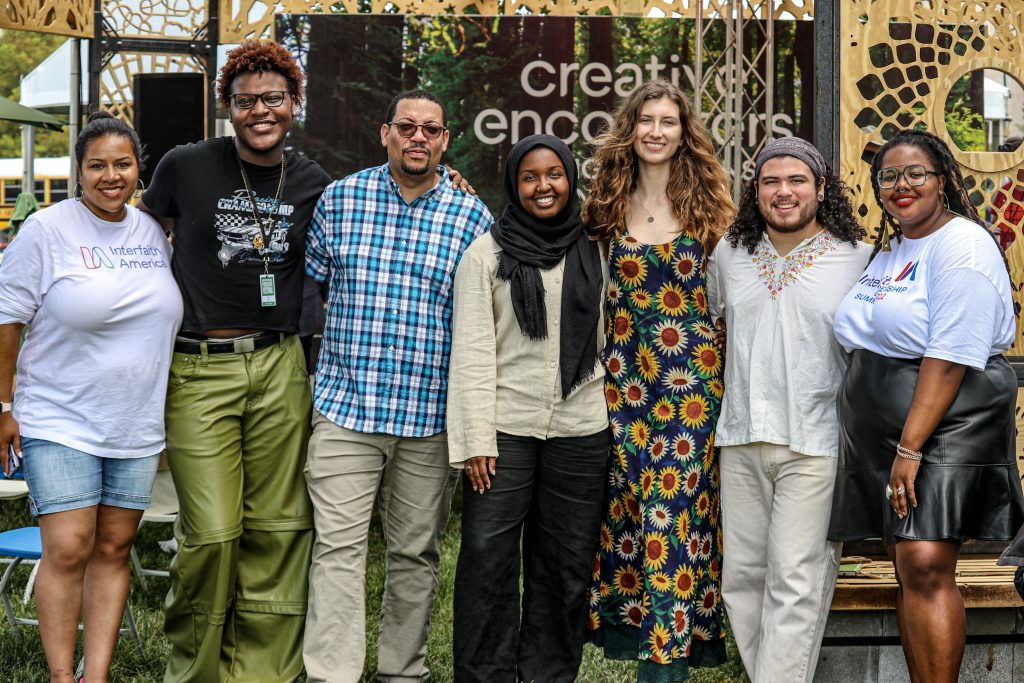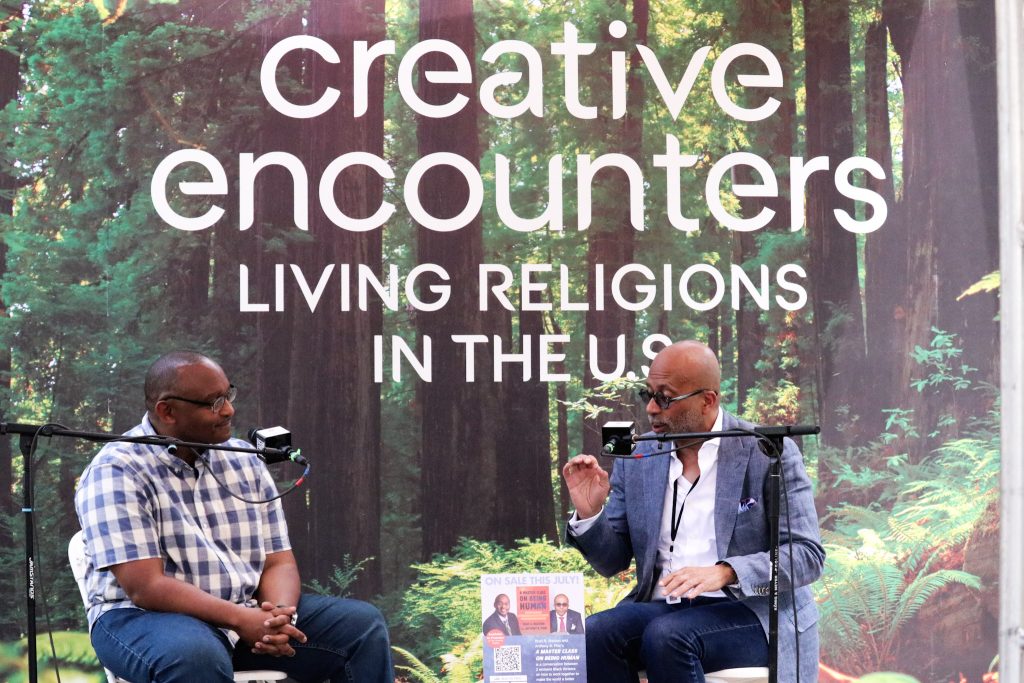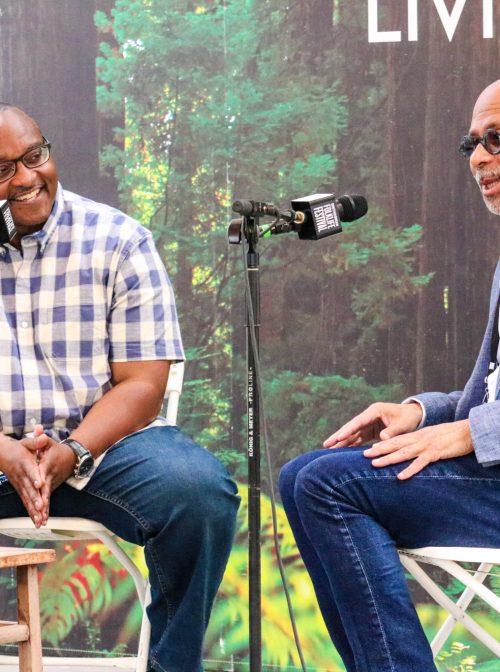Chapter 31, Verse 26 of the Quran says, “If all the trees of the earth were pens and the oceans ink, with many more oceans for replenishing them, the colloquy of God would never come to end. He is indeed all-mighty and all-wise.”
This is to say that if all the trees of the earth were to become pens, and all the water in all the oceans of the world were to become ink, which would then be replenished by seven more oceans, the words written would still fall short of a complete list of all the manifestations of God in creation.
We chose this verse as the inspiration for Interfaith America’s Interfaith Poetry Jam performed at the Smithsonian Institution’s Folklife Festival on June 30 because it speaks to the infinite diversity of creation and the power of words and writing. IA’s Black Interfaith Project was born out of an understanding that there is great diversity of religious expression within traditions, and for many, that diversity is best understood when it is embodied through art.

For more than fifty years, the Smithsonian Folklife Festival has provided a platform for people to share their stories with the widest possible public on the National Mall of the United States. Over the years, the festival has become an international model for cultural exploration, exchange, and engagement through its hands-on workshops, discussion panels, performances, and more. It is a unique space in which festival performers and visitors can discuss the issues that matter most to them in a context of mutual respect and curiosity.

The theme for the Folklife Festival was “Creative Encounters: Living Religions in Twenty-First Century America.” Conceived in part by Rev. Dr. Brad Braxton, one of IA’s Black Interfaith Fellows, the festival explored the ways in which America’s diverse religious traditions are a wellspring of creative encounters and expressions. Through song, dance, rituals, culinary arts, and lectures, the festival highlighted the stories and experiences of hundreds of Buddhists, Christians, Hindus, Jews, Muslims, Sikhs, the followers of Indigenous and African-inspired religions, and others, as it shares the lived religious experience and everyday practices of diverse communities.
What do Americans create from their religious traditions? How does faith lead people to discern a sense of belonging or difference? How does religion nurture a relationship with our histories and heritage? Where do creativity, diversity, and mutual respect fit within our religious landscape? With these and other questions in mind, Interfaith America hosted five young poets from the Washington, D.C. area who reflected on their faith journeys and the influence on faith on their identities as part of this unique national conversation about the role of religion in American life.
The heart of a poetry jam is the encounter. It is a space where stories can be deeply felt. There are moments that can spark friction and moments that open paths toward deeper relationships and new possibilities if we encounter others with a receptive spirit. As poet, Sophia Hall, spoke in her work, “Lessons on Listening”:
My God speaks with a voice like my mother’s lullaby.
I listen. Each morning she braids faith into my hair
as if she can braid her broken country back together.
I listen as her tears fall and turn into rain against her lips,
like God… To her, laundry is prayer, the diligent folding, her head bowed.
And to me, poems are prayer, the breadcrumbs my God offers
to my pigeon body, begging, the poems lanterns guiding my faith.
I listen, I listen, I listen. Listen. Please listen.




